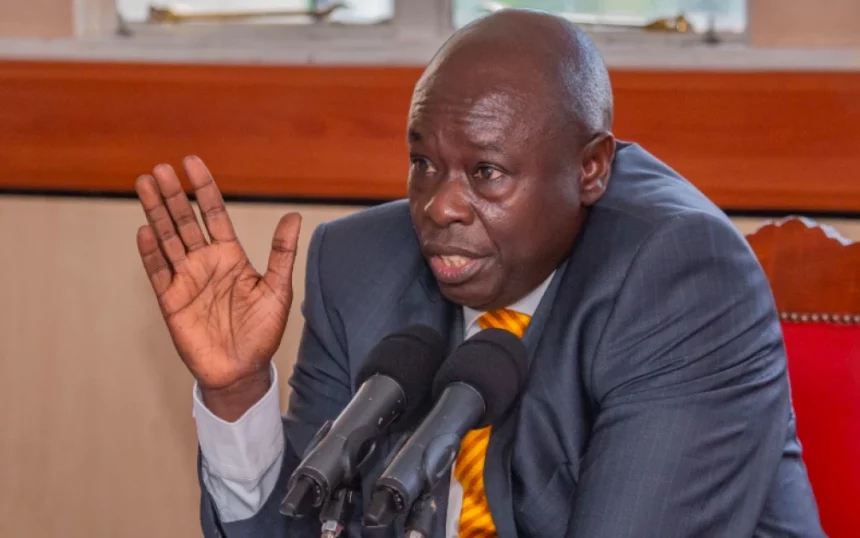Deputy President Rigathi Gachagua has admitted to abusing alcohol in the past.
Speaking Monday when he presided over a conference on ending alcoholism and drug abuse in the Rift Valley region, the deputy president said he has since quit alcohol after becoming a ‘born-again’ Christian.
“The President, [Interior Cabinet Secretary Prof Kithure] Kindiki, and the rest of us, none has a problem with alcohol. I must admit I used to drink a lot before I got saved and since I stopped drinking my things have been very good,” Gachagua said.
He added that his life has changed for the better after quitting drinking and even urged drinkers to give it a try, saying, “That is how I am deputy president. I invite those who drink to consider dropping it and maybe your things will get better.”
At the same time, the deputy president put on notice law enforcement officers whom he accused of aiding the menace by soliciting bribes and running drinking dens.
“We are very happy with police officers who are doing a very good job but we have a serious problem with a few of them who have a conflict of interest and have opened bars in the areas where they serve. We have a problem with a few officers who are collecting protection fees; police officers who are supposed to arrest drunkards but they are more drunk,” Gachagua said.
He warned rogue businesspeople who have been manufacturing illicit alcohol in unhygienic distilleries, bottling and selling it as authorised brands, saying the government will not hesitate to punish them.
“None of us has a problem with alcohol, but we have a problem with poison in the name of alcohol,” Gachagua said.
According to the DP, the brewers have been bringing ethanol from neighbouring Tanzania.
As of May 12, the government had arrested over 3,000 people, closed 5,000 unlicensed premises, and confiscated over 2 million litres of illicit alcohol, since it launched a crackdown in January, according to Interior Principal Secretary Raymond Omollo.
The latest statistics from the National Authority for the Campaign Against Alcohol and Drug Abuse (NACADA) show that Kenya’s Western region is leading in cases of alcoholism in the country, with an alcohol prevalence rate of 23.8%, followed by the Coastal region at 13.9%, and Central at 12.8%.
On consumption of alcohol, Western has the highest cases of chang’aa and traditional brew consumption while the Central region leads in the use of potable spirits (4.1%) followed by Coast (3.2%) and Rift Valley (3.1%);
Central region had the highest prevalence of current use of tobacco at 11.9% followed by Coast (10.8%) and Eastern (10.7%).



